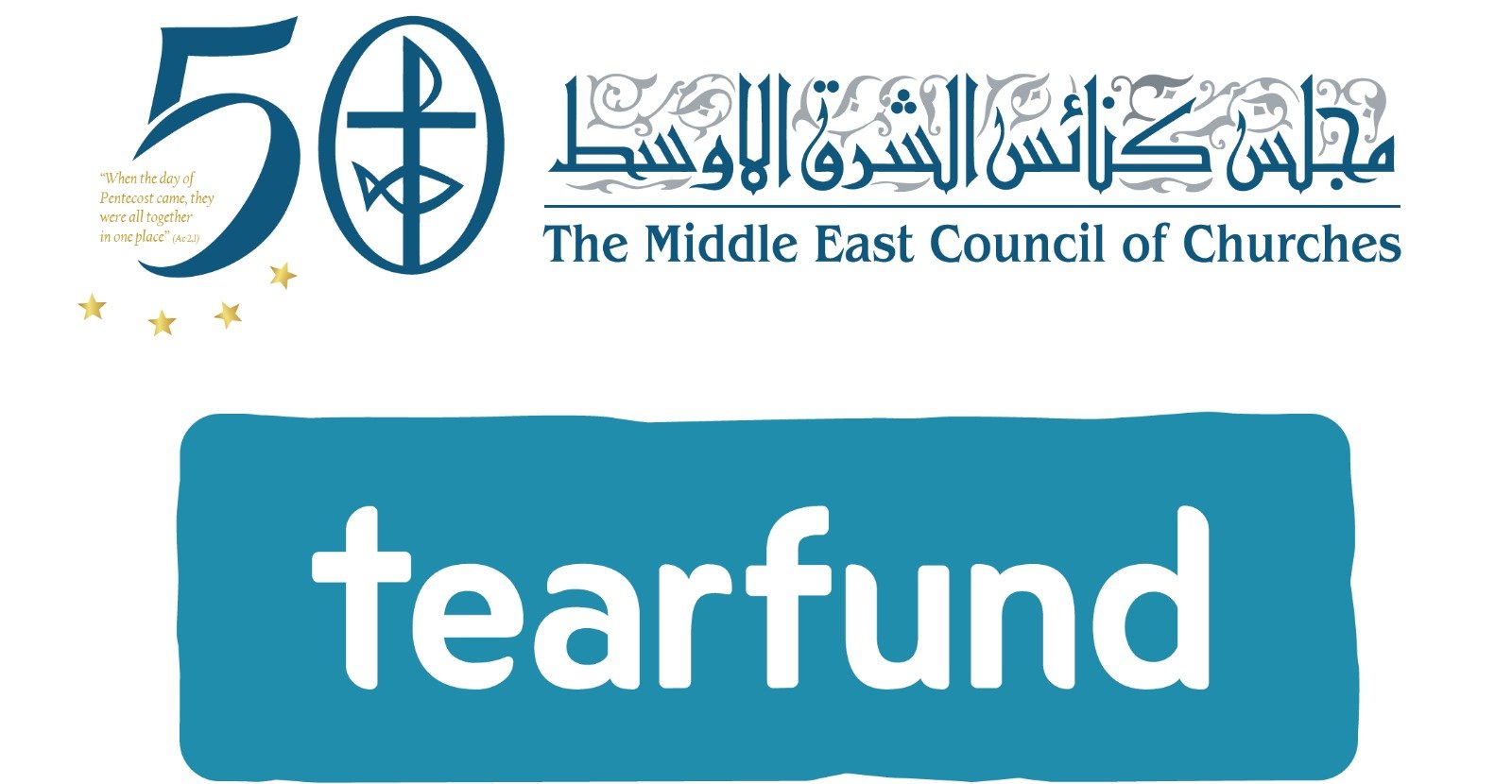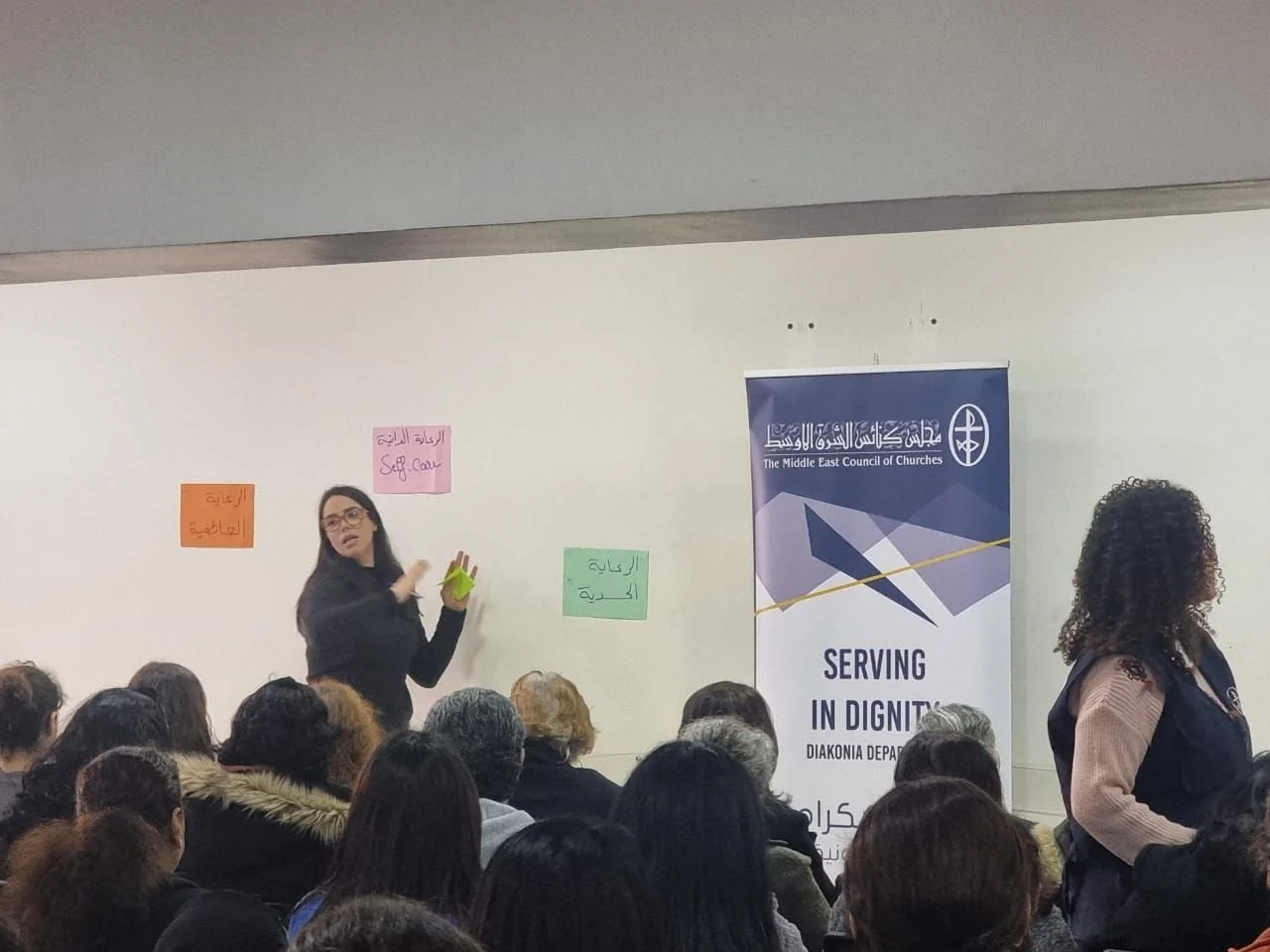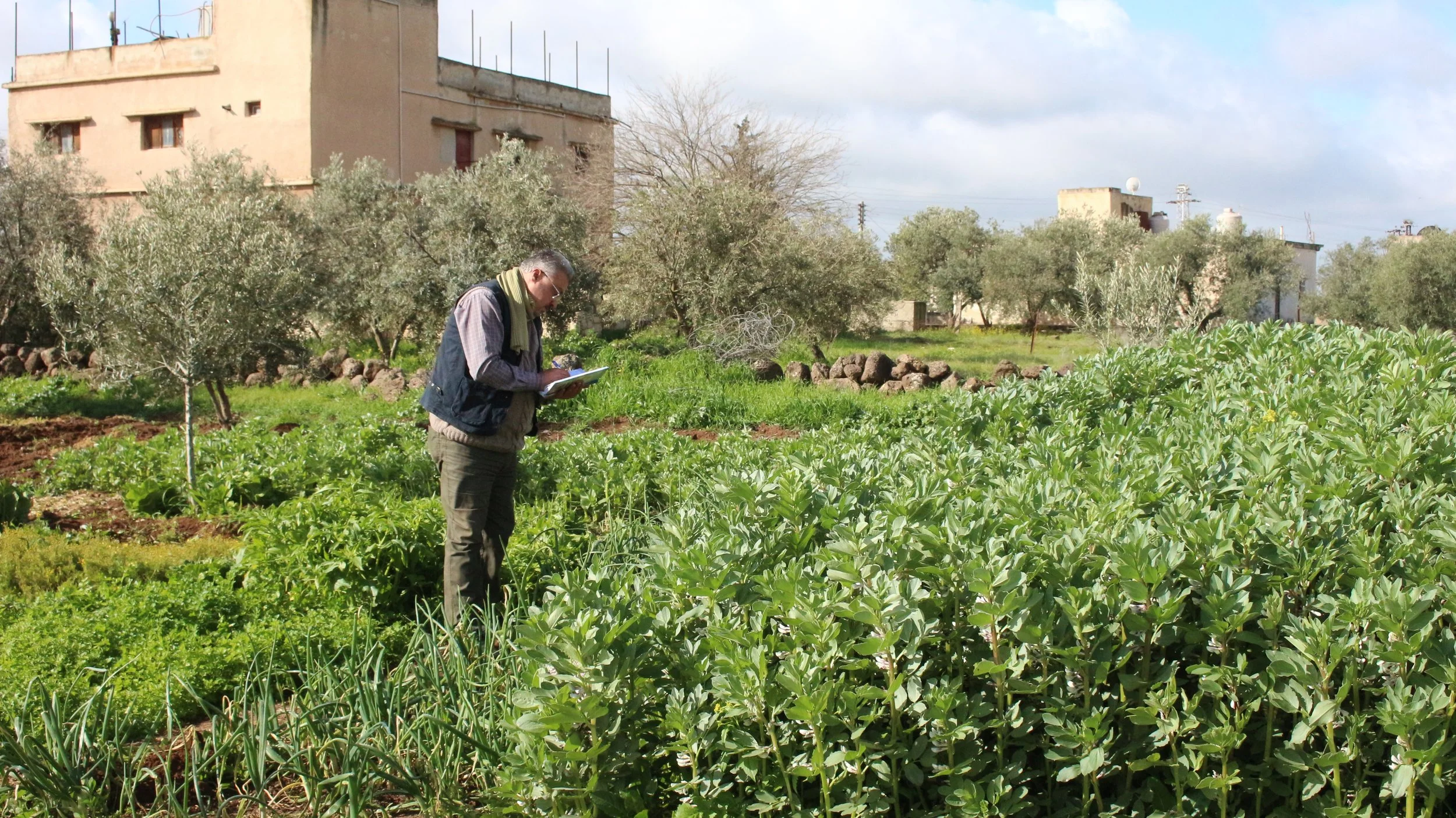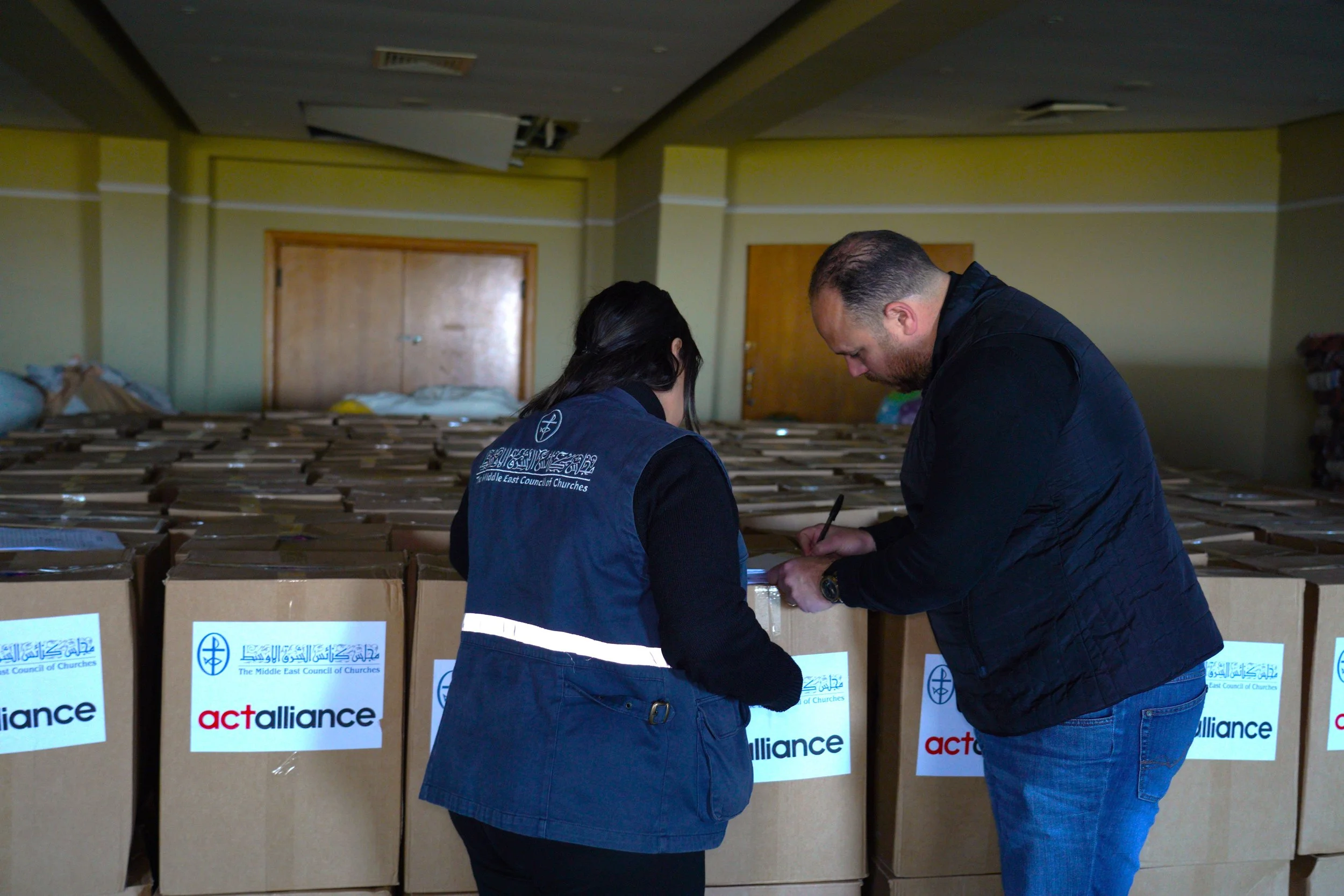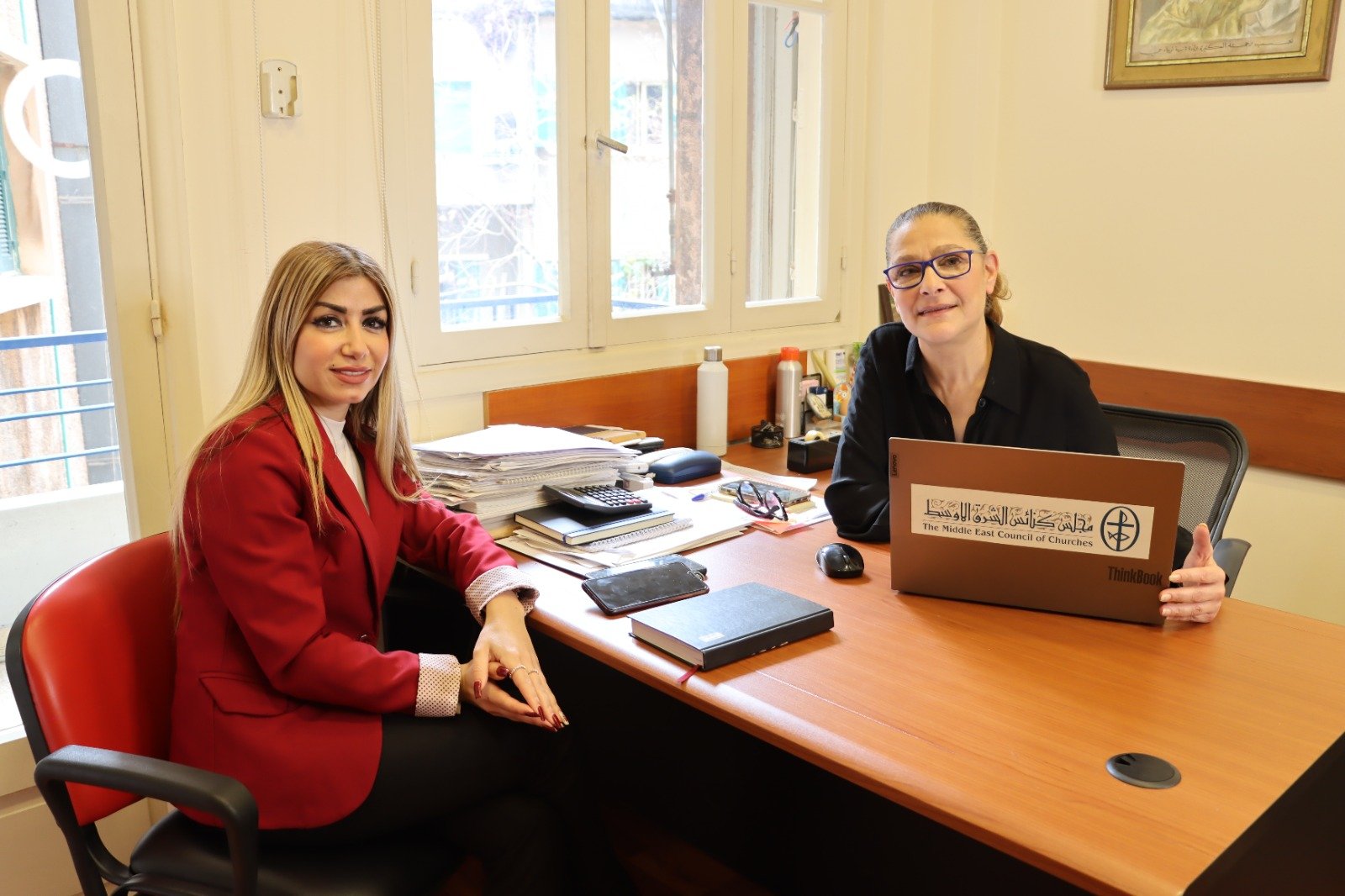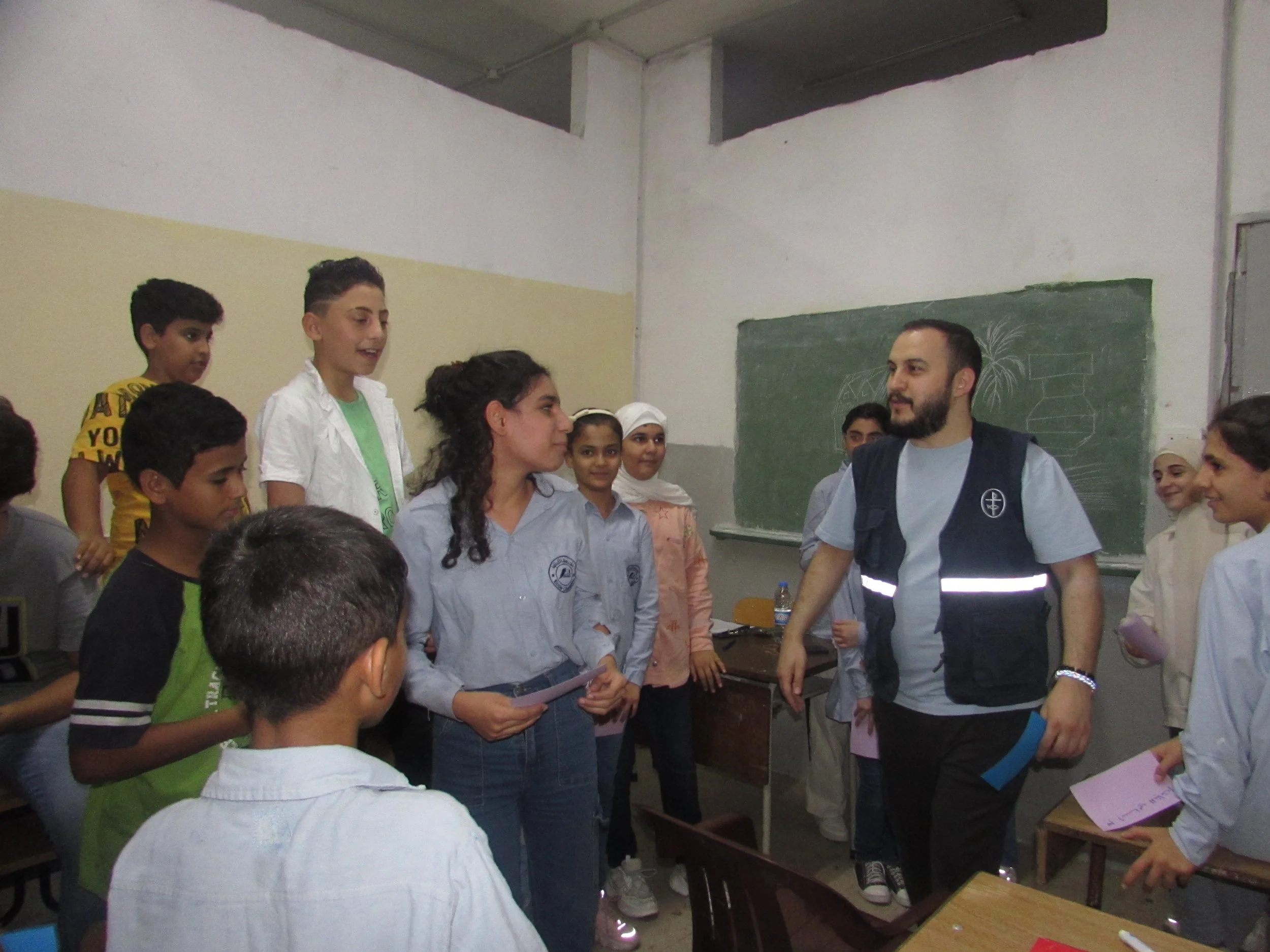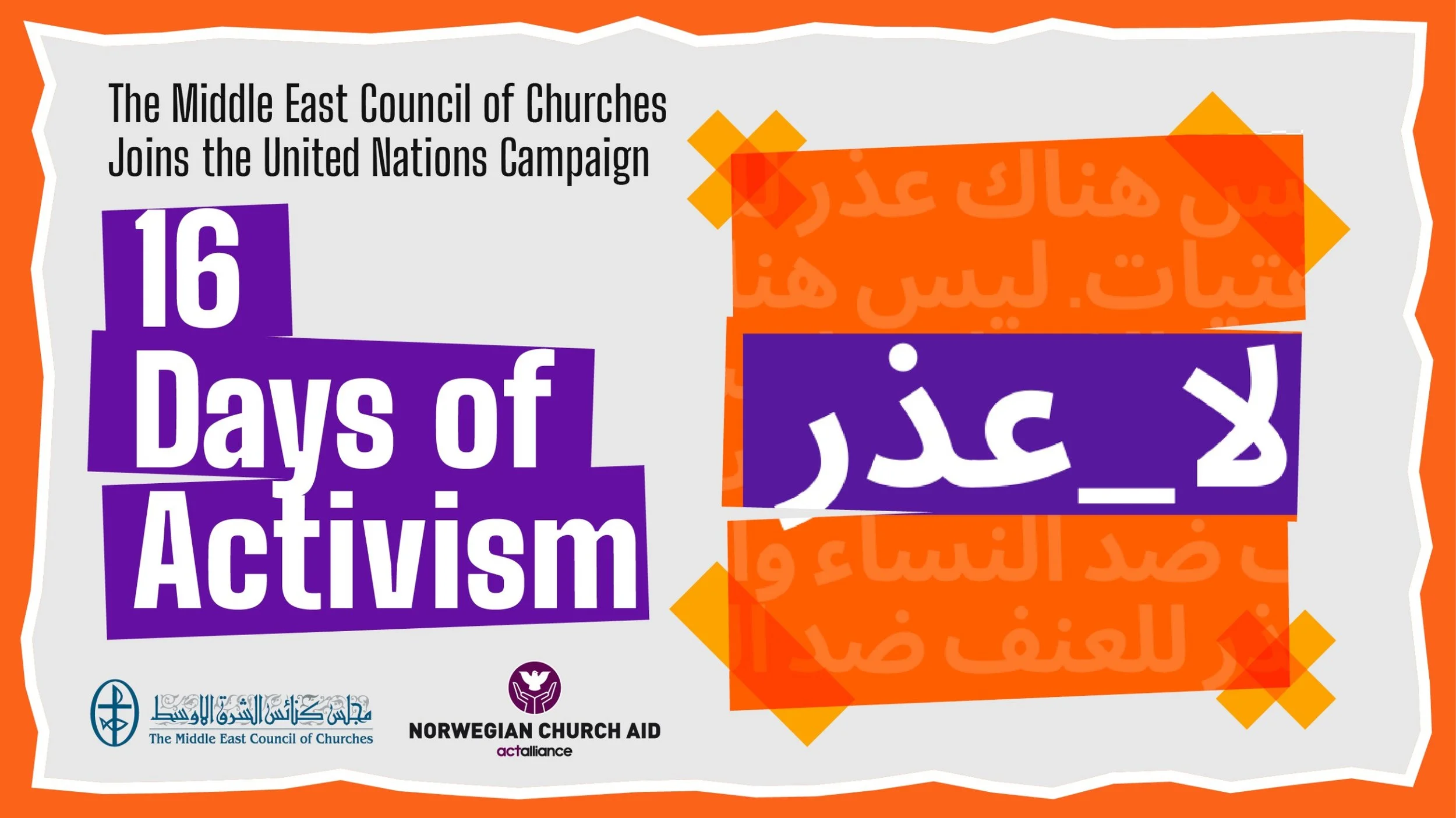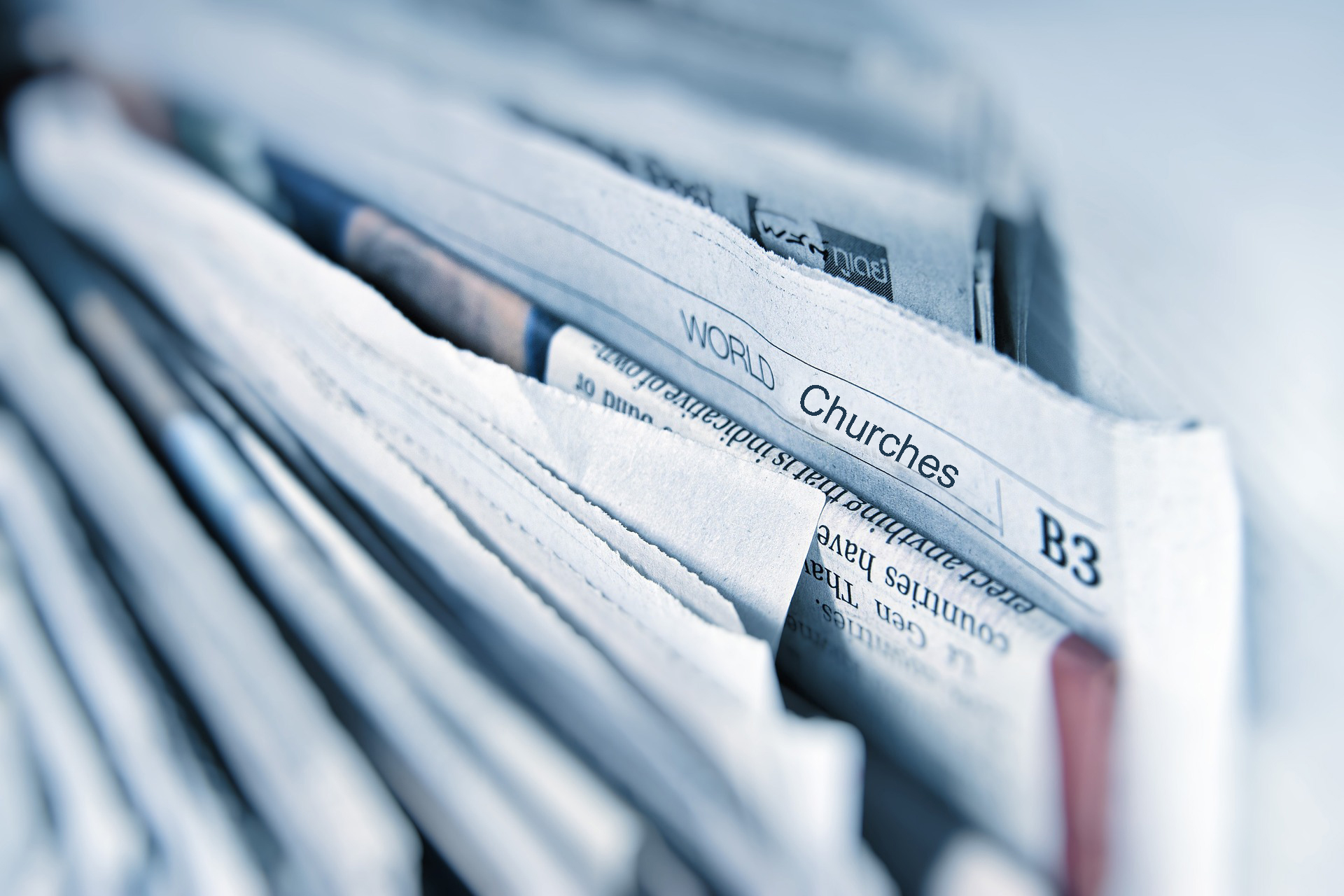
MECC
There's No Place Like Home
Video - The Middle East Council of Churches Launches a New Homecare Services Platform
Under the slogan “There's No Place Like Home,” the Middle East Council of Churches (MECC) developed and launched a platform dedicated to homecare services in Lebanon, in the field of identifying certified caregivers. The platform provides a user-friendly and convenient search for service seekers, as it connects them with certified caregivers who in turn provide specialized support in a safe and loving environment.
It is worth mentioning that the caregivers certified by the Middle East Council of Churches had undergone a comprehensive and intensive training program of 120 hours with Saint George Hospital University Medical Center (Beirut, Mount Lebanon, and Tripoli) and Khoury General Hospital (Zahle, Lebanon). Therefore, they were equipped with the health skills and necessary knowledge, and hence became prepared to deal with various medical tasks and offer high-quality care.
Video - A story from Akkar, Lebanon
Mr. Joseph Daher Increases Wine Production in His Factory with A Contribution from MECC
With the deterioration of economic and social conditions in Lebanon, the Akkar region was not immune from the crises that cast their shadow over the country. Therefore, the Middle East Council of Churches (MECC), Diakonia and Social Service Department, Lebanon Office, seeks to support the people of Akkar, as well as other Lebanese regions, by implementing a business development program for small and medium-sized enterprises (SMEs) in order to help their owners face the daily challenges and ensure a long-term sustainability for their projects.
In the video, Mr. Joseph Daher, owner of a winery in the Andaket-Akkar region, describes the phases he went through in order to establish his project, and how, through the support of MECC, he was able to increase his production.
Video - A story from Akkar, Lebanon
Father Seraphim Awad Revives His Agricultural Project with the Support of MECC
In a step towards enhancing the livelihoods of the people at the Lebanese Akkar region who, like all other Lebanese, suffer from the difficult living conditions, the Middle East Council of Churches (MECC), Diakonia and Social Service Department, Lebanon Office, launched a business development program through supporting small and medium-sized enterprises (SMEs), and help them secure their long-term sustainability.
In the video, Father Seraphim Awad, the Priest of Sheikh Lar Parish in Akkar, a farmer, agricultural technician and owner of an agricultural project in Akkar, talks about the circumstances he went through in addition to the contribution of the MECC program in developing his project.
Video – MECC South Crisis Response, Lebanon
Restoring Hope Towards Community Resilience
Amidst the difficult security and living conditions that Lebanon is going through as a result of wars and conflicts in the Middle East and the world, the South of Lebanon is witnessing the displacement of its people who have persevered, strove and sacrificed to preserve the heritage of their ancestors, as many families have been displaced to Tire, Sidon, Beirut and other areas to secure a safe haven.
In light of this saddening humanitarian scene, the Middle East Council of Churches (MECC), took the initiative, through the team of the Diakonia and Social Service Department in Lebanon, and with the support of its partners, to hasten in lending a helping hand and delivering what is necessary, so that to help those affected to endure, while preserving their basic human.
Hence, this video sheds light on the response of the Middle East Council of Churches, the Diakonia and Social Service Department, Lebanon’s Office, to the crisis that the South of Lebanon is passing through, in addition to its humanitarian and relief field work to support those affected and heal their wounds.
Postponing the Workshop on Churches in Disasters
In view of the emerging conditions, the Middle East Council of Churches (MECC) announces the postponement of the workshop that its Diakonia and Social Service Department, was going to implement in cooperation with the TearFund organization, on Churches in Disasters, during this month in Lebanon, to a date to be determined later.
Noting that the workshop aims to empower participants and develop their capabilities in order to support them in responding in times of crises. The workshop also aims at providing the participants with skills that will enable them in turn to train members of their congregations, so they can all help the Church heal the wounds of the most affected people in times of disasters, on various humanitarian, social, health and psychological levels.
The Middle East Council of Churches Contributes in Empowering Displaced Women in the South of Lebanon
With the worsening security circumstances in the South of Lebanon due to the ongoing conflicts in the region, its residents are still suffering from many living challenges and psychological pressures that increase daily in the face of an unknown future. In this context, psychological and social support has become necessary, especially for the most vulnerable citizens, in order to alleviate their pain and help them overcome the difficulties surrounding them with hope and determination.
Hence, the Middle East Council of Churches (MECC) continues its relief work in the South of Lebanon with the aim of supporting the internally displaced people in various regions and shelter centers by providing in-kind assistance as well as psychological and social support. Thus, the MECC Diakonia and Social Service Department, Lebanon’s Office, implemented training courses for many displaced women on “self-care and services specialized in protecting women and children”. At the end of the courses, the participants received food and personal kits dedicated for women and children.
Video - MECC Implements a Business Start Up Course in Syria
Mrs. Rosaline Mousa Presents Her Story and How She Benefited from the Course
With the aim of empowering people in Syria and enhancing their capabilities and livelihoods, the Middle East Council of Churches (MECC), Syria’s Office, organized a new Business Start Up Course in Syria, which helped many families secure a source of income and restore hope to their lives. Hence, the video sheds light on the story of Mrs. Rosaline Mousa, one of the course’s beneficiaries, and how the Middle East Council of Churches supported her.
The Middle East Council of Churches Helps the Households in Tibneh to Improve Their Economic Situation by Growing Home - Gardens
In order to alleviate the economic burden on families and enhance their ability to access low-cost food and produce a variety of crops and foods in home gardens, a team from the Diakonia and Social Department, at the Middle East Council of Churches (MECC), provided winter seeds to the most vulnerable families in Tibneh village in Dara’a Governorate – Syria.
Families received winter seed kits which included beans, cabbage, lettuce, radish, parsley, cauliflower, coriander, and onions, as well as fertilizer and tools such as shovel, rake, hoe, plastic hose, brass tap, mulch, and a plastic water tank.
Noting that 190 families, including women-headed households, in Tibneh, benefited from the seed distributions.
An agricultural engineer visited all the beneficiaries twice a month to check on the plants and provide all necessary support and advice to the farmers to ensure good production.
The Middle East Council of Churches Contributes to Supporting More Than 10,000 Displaced People from the South of Lebanon
The escalation occurring in the South, resulted in the displacement of several citizens in various areas of Lebanon. They were forced to abandon their homes, possessions, and sources of livelihood during a time when the economic crisis is still prevailing. Already, the government was not able to provide the right circumstances for ordinary citizens to maintain their livelihood and source of income as many of the Lebanese population have fallen below the poverty line.
According to recent estimates, 80% of the Lebanese live in poverty and 36% below the extreme poverty line. As such, many are not able to acquire the basic necessities that encompass food, medication, heating equipment, and hygiene & dignity supplies etc... Expectations indicate, amidst the urgency of the situation, that between April and September 2024, about 1.14 million people are expected to face high levels of food insecurity and are likely to be in a crisis or emergency phase according to standards set by the Integrated Food Security Classification. As such the issue of the internally displaced people (IDPs) coming from the South, came at an unfavorable time during which humanitarian needs are already shocking.
On the World Day of Social Justice - February 20
The Phenomenon of Violence Is Still Rampant in Our Societies!
MECC Contributes in Reducing It Through Awareness Sessions in Lebanon
They are practices that threaten life, health, and a violation of human rights, requiring urgent protection for the affected people... With these words, the United Nations High Commissioner for Refugees (UNHCR) presents a definition of one of the most social phenomena that threatens the safety of humanity. It lies in the issue of gender-based violence. However, these phrases are not just words, slogans, and ink on paper, but rather describe a bitter reality that expresses the lack of social justice and sounds the alarm, especially with the high rate of violence around the world and in the Middle East.
What are the reason? In fact, there are countless reasons, and directly related to the daily pressures resulting from the difficult living conditions due to the crises and conflicts that cast their shadows all over the world, especially in the Middle East region, which has always suffered from many social challenges. But what are the solutions? How long will violence remain a weapon for many? Questions we must ask to those involved and concerned!
Rehabilitation of Four Schools in Al Sahweh and Al Yadouda in Rural Dara’a
The Diakonia and Social Service Department, at the Middle East Council of Churches (MECC), continues its efforts to provide a safe and healthy environment for students by renovating and rehabilitating schools that have been damaged by war in various Syrian governorates.
In Dara’a, the MECC team of the Diakonia and Social Service Department worked on the rehabilitation of four schools in the villages of Al Sahweh and Al Yadouda.
The rehabilitation activities included the rehabilitation of Water, Sanitation and Hygiene (WASH) infrastructure and pertinent equipment: maintenance of the pipes and water networks, and installation of taps, toilets, windows, doors, tile, ceramic, electric cables, water pumps, and tanks, in addition to completing the required painting work. The entire school was painted, along with the provision of new classrooms benches, fences for every school, and canopies were installed in the courtyards to protect students from the sun and rain.
It is worth mentioning that 987 students benefited from the rehabilitation and also received hygiene kits.
Video - Rehabilitation of Health Facilities in Many Schools in Dara'a Governorate
Within the framework of maintaining a healthy and clean environment in schools, the Middle East Council of Churches (MECC), Diakonia and Social Service Department, Syria’s Office, restored and rehabilitated health facilities in many schools in Dara'a Governorate. The restoration activities included the rehabilitation of Water, Sanitation and Hygiene (WASH) infrastructure, maintenance of the drinking water network, and installation of the other necessary equipment. It contributed to providing clean and safe health facilities away from the spread of diseases. Hence, this video highlights this restoration program that was implemented in Dara’a.
Cash Assistance Restores Hope Amidst Difficult Living Conditions in Lebanon
With the escalation of wars and conflicts in the world and the Middle East, the Lebanese people are suffering from economic, social and health crises... which are casting a shadow over the country. Therefore, many citizens are facing daily challenges, especially since many of them live alone without a source of income or support to help them secure their basic needs.
For its part, the Middle East Council of Churches (MECC) is seeking, since its founding, to heal the wounds of the neediest and affected people due to the difficult living conditions through humanitarian programs that it implements during the year. In this context, the MECC Diakonia and Social Service Department, Lebanon’s Office, recently distributed new multipurpose cash assistance to 975 Households which included female-headed households and elderly who are living alone and who do not have anyone to turn to.
MECC Restores 27 Buildings Damaged by the Earthquake in Aleppo
On the sixth of February 2023, Syrians woke up to a new disaster that exacerbated their suffering. In a moment everything changed, buildings and houses collapsed, the ground shook, and days unfolded with a harshness reminiscent of war.
The earthquake that struck several provinces in Syria caused a great humanitarian catastrophe by all standards, with great material and human losses. Whoever got out alive from under the rubble, and whoever escaped from death, re-experience displacement.
However, despite all this pain, there was a ray of light that illuminated the darkness of the people in the areas affected by the earthquake disaster. The Middle East Council of Churches (MECC), through its Diakonia and Social Service Department in Syria, quickly moved to stand by the affected people by providing food, health assistance, and financial aid in the provinces of Aleppo, Latakia, and Hama.
Empowering Women in Lebanon by Developing their Skills
With the worsening living crises in Lebanon on various social, economic and health levels…, the Lebanese people are suffering under the weight of daily pressures and many challenges that restrict them and reduce their usual activities. Therefore, and out of its belief in the necessity of supporting the neediest and most vulnerable groups, the Middle East Council of Churches (MECC) continues its social services in order to restore hope to many brothers and sisters who have drowned in despair.
In this context, the MECC Diakonia and Social Service Department, Lebanon’s Office, held, during December 2023, five soft skills training courses, in which a group of 10 women participated, with the aim of empowering them and developing their abilities. These sessions were implemented at a time when many of them are suffering from the difficult circumstances that surround them, especially since some of them are either unable to find decent jobs or are holding on to meager low-paying ones.
Video - Highlight on the Work of the MECC Diakonia and Social Service Department, Lebanon’s Office, Via an Interview with the Office Director Ms. Nina Hallak
Since its establishment in 1974, the Middle East Council of Churches (MECC), in parallel with its mission in enhancing the Ecumenical spirit in the Middle East, has also sought to carry out its humanitarian mission in various countries of the region through the programs of the Diakonia and Social Service Department. This is in order to support the neediest and most vulnerable people and help them overcome daily challenges, especially with the worsening crises, conflicts and wars in the region.
The Lebanon’ Office in the Diakonia and Social Service Department at the Middle East Council of Churches (MECC) works hard to preserve the human dignity and rights. In this context, you can find in the video an interview with Ms. Nina Hallak, the Director of the Lebanon’s Office of the Diakonia Department, during which she sheds light on the Department’s work and humanitarian, social, health, cultural and educational programs that are implemented in various Lebanese territories without discrimination.
Nina Hallak: “The Diakonia Department is for Humans and Our Goal is to Preserve Their Dignity”
It is the Middle East Council of Churches (MECC), which deals with Ecclesiastical, humanitarian and social issues. Since its foundation in 1974, MECC has worked to strengthen the Church’s mission and highlight its pioneering Ecumenical role at all levels, and has proven that the Church is for Man.
Yes, it is the Middle East Council of Churches (MECC), which works with non-stop through its various offices and programs in Lebanon and the rest of the region and seeks to heal the wounds that are increasing amidst the current challenges and harsh circumstances.
The Diakonia Department Office in Lebanon, which was founded since the establishment of the MECC in 1974, is one of the most important offices that is distinguished by its humanitarian, social, health, cultural, and educational programs across various Lebanese territories without discrimination, because what is most important to the Department’s work is the human being.
In a media interview, the Director of the MECC Diakonia Department Office in Lebanon Ms. Nina Hallak spoke at length about the work of the Diakonia Department Office and said:
“The name of Diakonia indicates its true meaning, that is, service through the Church and humanitarian work, and includes many programs and projects, as such relief work and emergency responses, as well as skills development that help the Lebanese citizen to find job opportunities via his participation in training workshops and improving his skills.”
Video - The Middle East Council of Churches Contributes to Ensuring the Stability of More Than 100 Families in the City of Aleppo - Syria
Retrofitting of 28 Buildings Following the Earthquake that Struck the North of the Antiochian Levant
About 10 months have passed since the catastrophic earthquake that struck the North of the Antiochian Levant on 10 February 2023. The Syrians are still suffering from its massive repercussions, as their wounds have not yet healed. In response to the emergency humanitarian appeal in Syria, the Middle East Council of Churches (MECC) continues its humanitarian and relief work in the wounded Syria since the first moments of the earthquake.
In this context, the MECC work included providing the necessary support to those affected by distributing basic aid for daily life. Recently, and with the support of its partners, MECC was able to secure the stability of more than 100 families in the city of Aleppo by retrofitting 28 buildings that collapsed as a result of the earthquake.
In the video, one of the surviving women in the city of Aleppo describes the first moments of terror immediately after the earthquake occurred, and speaks about the difficult circumstances they experienced in Syria as a result of this disaster. The video also highlights the Middle East Council of Churches' ongoing relief and field work to restore hope to the affected people.
The Middle East Council of Churches Organizes Awareness Sessions on Sensitive Social Issues for Schools’ Students
“Every child deserves to feel safe in the school and local society.” With these words, UNICEF is sounding the alarm bell due to the escalation of serious risks resulting from the high rate of violence against children and adolescents and the violation of their basic rights in many cases due to difficult living conditions. Therefore, it has become necessary to take serious measures to protect children and adolescents and preserve their dignity. Hence, many international and regional parties seek to raise awareness about sensitive social issues in order to reduce every phenomenon that violates human dignity.
From its end, the Middle East Council of Churches (MECC) has been working since its founding and through its various programs to raise awareness on societal dangers in order to contribute to reducing violence and healing the wounds of the most vulnerable.
Video - With the UN, No Excuse
MECC Joins the 16 Days Campaign “UNITE to End Violence against Women”
And Interventions Stress the Importance of Women’s Protection and Men’s role in Societies
Amidst the high rate of violence against women around the world, the United Nations is sounding the alarm, especially through an annual international awareness campaign extending over 16 days that it launched in 2008 under the title “UNITE to End Violence against Women. It begins on 25 November with the International Day for the Elimination of Violence Against Women and ends on 10 December with International Human Rights Day.
In its turn, the Middle East Council of Churches (MECC) joins this campaign, which this year took the slogan “No Excuse,” and emphasizes the necessity of facing the violence against women, preserving human dignity, and the importance of men’s role in protecting the family and contributing to building better societies. This is what was confirmed by the beneficiaries of the services provided by the “Our Lady Dispensary” in Beirut, and affiliated with MECC.





